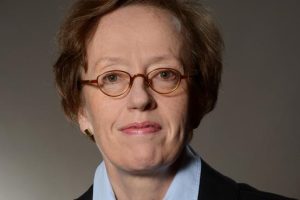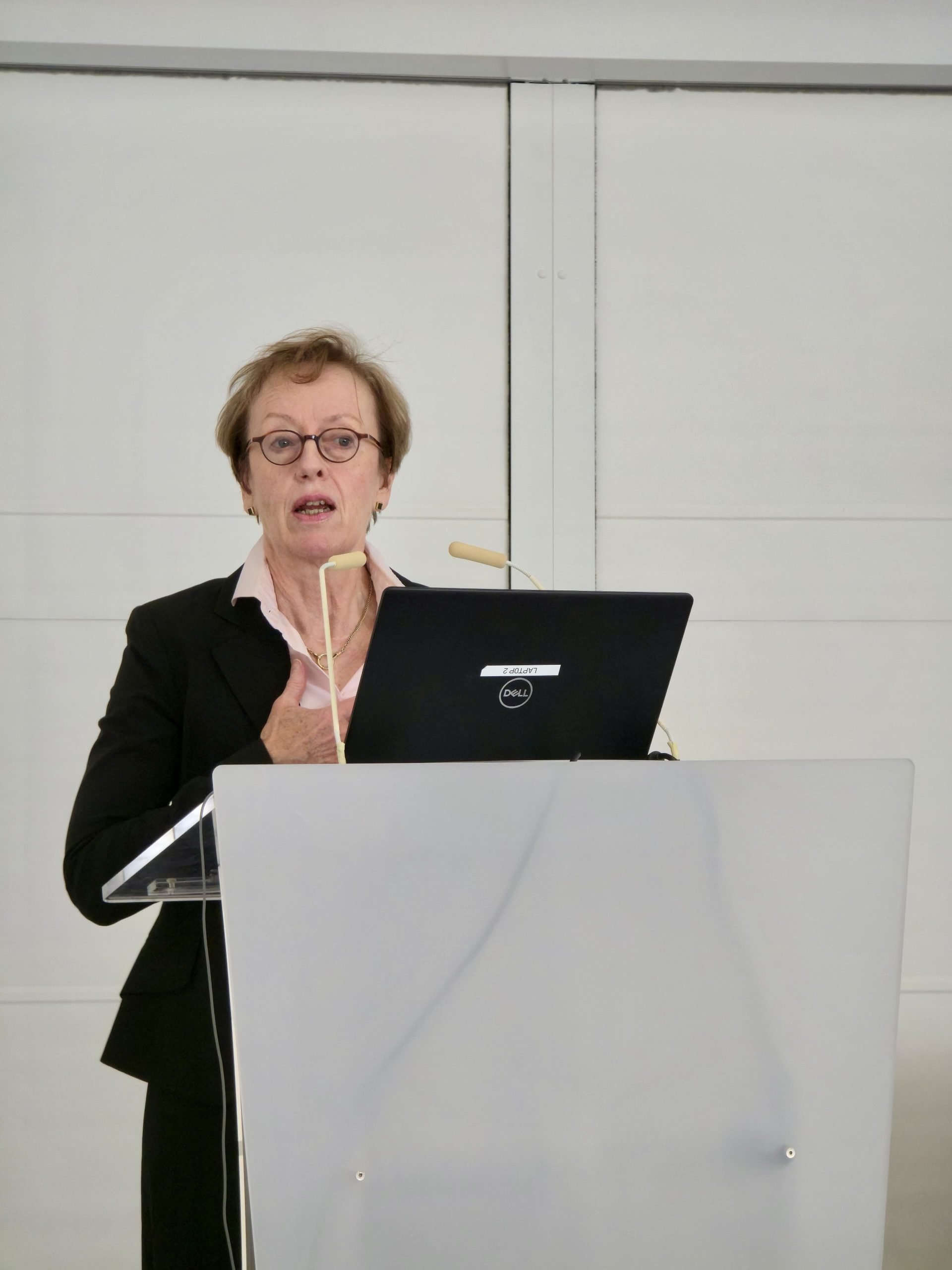We were pleased to welcome Professor Lesley Jane Smith for a research stay in May, as a Distinguished Visiting Scholar at the Luxembourg Centre for European Law (LCEL). During her visit, she delivered an insightful keynote lecture addressing the main legal issues relating to the activities of the EU in the space sector, viewed through both constitutional and technological lenses, particularly in relation to its own space programmes and the evolving role of the EU within the international community.
In addition, Professor Smith contributed her expertise to an expert panel discussion that explored and critically assessed the rapidly evolving landscape of EU proposals and legislation. The panel focused on the increasing interconnectedness of electronic communications, connectivity, data governance, cybersecurity, and space regulation, and examined how these frameworks seek to ensure the safety and security of European space operations, while supporting society’s growing reliance on satellite-based infrastructures.
We reached out to Professor Smith to hear her perspective on the role of EU law and governance in shaping the future of space activities, and on the importance of building legal and institutional capacity to meet the challenges of this expanding policy field.
You visited the LCEL as part of a two-part event focusing on legal frameworks for outer space, a field where the EU is becoming an increasingly active player. How do you see the relevance of EU law and governance in shaping the future of space activities?
The Union has a very specific role to play in space both at EU regional and at international level. The EU has its own space programmes, and now owns space assets, with more spacecraft underway under the Iris2 secure government satellite programme. All these activities make it subject to international space treaty law, as well as subject to various other specific international rules (ITU, WTO). At the same time, the EU must abide by its own constitutional provisions under the Treaty of Lisbon. The EU is keenly aware of the relevance of peaceful uses of outer space, and has already secured its non-dependency on third state non-EU space systems. However, as society becomes increasingly dependent on satellite-based services, from navigation, communication, to earth observation, it is imperative that the EU can also be seen to be at the forefront of technological developments. This entails ensuring the level of governance over its space activities as is required by international law, as well as ensuring the existence of its own accompanying rules and instruments to operate and manage its space systems. The EU can take on a leading role in paving the way for compliance with higher standards contained in technical rules that ensure the sustainability of outer space environment.
With the European Commission preparing the EU Space Act to establish common rules for safety, resilience, and sustainability in space activities, what role does academia play in this context? How important is it to educate and equip future legal professionals and policymakers to engage with this evolving legal landscape?
Traditionally, academia has the role of independent review and analysis of legislative developments, with experts in European Union law renowned for assessing new EU rules from the perspective of the Union’s own catalogue of competences. The University of Luxembourg, along with various other leading European universities, is host to well-known scholars and independent experts in the field of space law.
One of the outcomes from yesterday’s EU constitutional space law panel was indeed a clear call from the audience to provide dedicated education and training for space agencies, administrators and the legal profession on the subject of space and governance. Space technology evolves fast, and policy makers and lawyers need to keep up to date with a host of cross-cutting rules that interact. The complexity of legal instruments and the various agencies and stakeholders involved in space activities at EU level alone, can be best understood through developing dedicated training programmes. The field of outer space is inherently inter-disciplinary. Training current and future generations in this field of law and policy is a sine qua non to facilitating the availability of qualified personnel to populate EU’s own administration, if it is to maintain its position in the global field of space activities.
Space activities increasingly intersect with other regulatory domains, from cybersecurity and data governance to environmental protection. From your perspective, what legal challenges arise from this overlap, and how can EU law contribute to building a more coherent and future-oriented framework for space activities?
Within its catalogue of legal instruments, the EU has various options, generally directives and regulations for mapping out its regulatory programme. In a system such as the Union’s where legislation is generally subject to a decade turnover of reporting, review and update, labelling the choice of instrument as is now done may help reduce the complexity involved (Act etc).
Although in Directive form, the original sector-specific Electronic Communications Code (EECC) became a standalone, in part by the choice of the term “Code” for what was a directive. More recent stand-alone significant pieces of legislation are meanwhile also termed “Acts” (EU Space Act; AI Act). The term Act transmits the significance of the measure.
Greater insight on this point will be gained on availability of the EU Space Act. The Commission had refrained from publishing any specific information in advance of this document so that the content of the legislation can only be generally surmised.
Much of the material relating to space and related fields is present in individual instruments and not codified. The EU can contribute to a more coherent future in the field of space law by already maintaining an overview (e.g. in catalogue form) of its own rules currently in force. This could be a first step in making the sector more accessible and coherent to interested stakeholders and to the general public.
An obligatory last question. How would you describe the LCEL in 3 words?
Three words are insufficient to describe the interest, hospitality and accessibility to LCEL’s excellent research resources and facilities, but I shall try: “pro-active environment (for) research (three words, excluding the preposition!!)”



